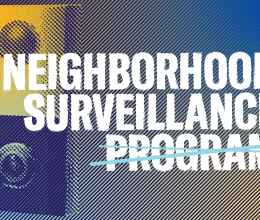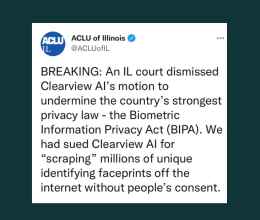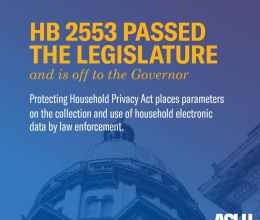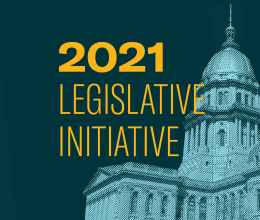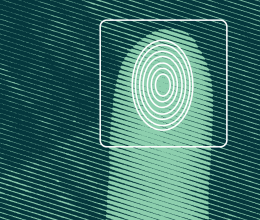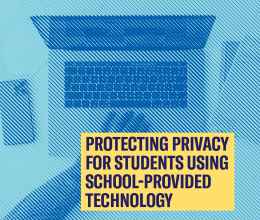
UPDATE 5/31/20: The legislative session was impacted due to COVID-19. We look forward to continue working on this issue during the next legislative session.
As technology continues to grow and makes its way into our homes, Illinois law must protect our data and us.
Sophisticated "smart" technology is making its way into our homes at an unprecedented pace. The same virtual assistants, security cameras, and smart appliances that used to appear on TV have now become a part of many American households. Such devices can provide convenient benefits to their owners and offer the promise of a "safe and smart home" with powerful monitoring and automation capabilities.
Equipped with sophisticated sensors, including microphones and video cameras, many of these devices have the capacity to collect, store and transmit an almost limitless amount of personal and private information from within the home. Third parties routinely receive this data through electronic communications from the device
To safeguard the privacy of innocent persons using this technology, the Protecting Household Privacy Act (PHPA) places parameters on when such sensitive household electronic data may be lawfully obtained. Consistent with the Fourth Amendment and the United States Supreme Court's recognition that an individual's expectation of privacy is greatest within their home, the PHPA protects household electronic data and does not allow law enforcement agencies to acquire such data from a private third party, unless:
- The law enforcement agency first obtained a valid court order
- The law enforcement agency seeks to obtain the data in an emergency situation
- The owner of the data consents to voluntarily provide the desired data
Even when such data is obtained by a law enforcement agency, the PHPA mandates that it be destroyed within 30 days unless there is a reasonable suspicion that the information contains evidence of criminal activity or the information is relevant to an ongoing investigation or pending criminal trial.
In addition to placing limits on law enforcement access, the PHPA requires manufacturers of household electronic devices to provide clear and conspicuous notice of all categories of data disclosed to third parties, as well as the names of all such parties that receive household electronic data.
Illinois citizens should not have to choose between using household technological conveniences and preserving the right to privacy in their home.
